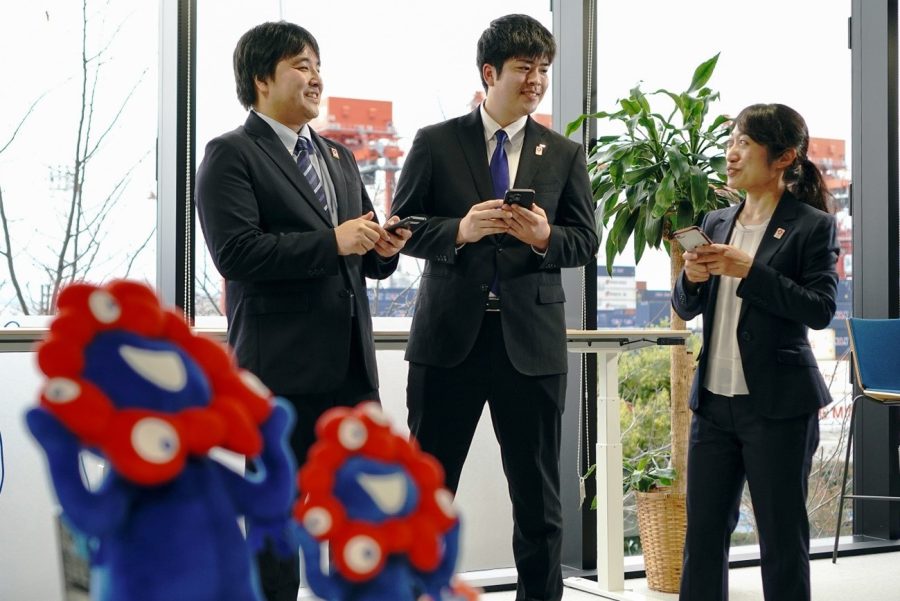
A smart collection box prompting visitors to think about the importance of the recycling of resources through a smartphone app will be set at the venue of the Expo 2025 Osaka, Kansai, Japan. It will be produced by “Hitachi Zosen,” which mainly constructs waste-to-energy plants. It will convey the message that if waste is correctly sorted, it can be used repeatedly as a resource by visualizing where this waste goes after it is thrown away.
The actual business of “Hitachi Zosen” has deviated from the company name, which includes “shipbuilding,” more than any other company. The capital relationship with Hitachi was dissolved shortly after the end of World War II. The company split off the original shipbuilding business in 2002 and currently engages mainly in environment business such as the construction of waste-to-energy plants. They have established a position as a top group, whose share in the domestic market of “power generation from waste incineration,” in which heat from incineration is converted into energy such as electricity, is about 20% on average.
Mai Ogura joined the company when the sales of the Environment Business were growing to account for nearly half of overall sales. Back then, the in-house mindset was that “environmental conservation corresponds to waste treatment.” However, the demand for the construction of waste-to-energy plants could hardly soar due to the decreasing population.
After joining the company, Ogura was assigned to the Development Department, which was in charge of creating the next core business. She cooperated with the team to devise business that could replace waste incineration, taking a challenge at various initiatives. As she endeavored to utilize livestock waste by turning pig and chicken feces into ash and using them as fertilizing materials to cultivate plants, she started to feel potential in approaching waste as a resource and recycling it.
In 2018, the company formulated a “Policy for the Promotion of SDGs (Sustainable Development Goals) and expressed the stance of devoting all of their resources to address SDGs. Just in the same year, Ogura was transferred to the current Environmental Engineering Promotion Department. Participating in a committee composed of industry peers and university specialists, she was blessed with the opportunity to discuss the future of waste treatment and environmental hygiene under the themes of carbon neutrality and AI (artificial intelligence). Her aspirations further grew as she thought that “from now on, I would like to recycle waste before it is thrown away and sent to incineration facilities. Give it a new life as something else, not limited to energy such as electricity.”
Meanwhile, there were significant developments in governmental policies as well. As a result of the “G20 Osaka Summit,” the “Plastic Resource Circulation Act,” adding “Renewable” to the 3Rs: “Reduce,” “Reuse” and “Recycle,” came into effect. The resource circulation for waste including plastic is not an issue that can be fully addressed just by one company.
Ogura thought that “significant progress can be expected when the mindset of not only enterprises and municipalities, but also each and every person changes. It should be meaningful for Hitachi Zosen to spread the information on correct waste separation, which is the first step, all the more because we are part of the environment business.” At that time, she found out about the call for the Co-Design Challenge entries. She felt that it was a one-in-a-million chance to connect with consumers as her company is a B2B company which engages mainly in corporate transactions.


※Hitachi Zosen Corporation changed its name to Kanadevia Corporation on October 1, 2024. The company name at the time of the interview is shown in the article.
Share this article


